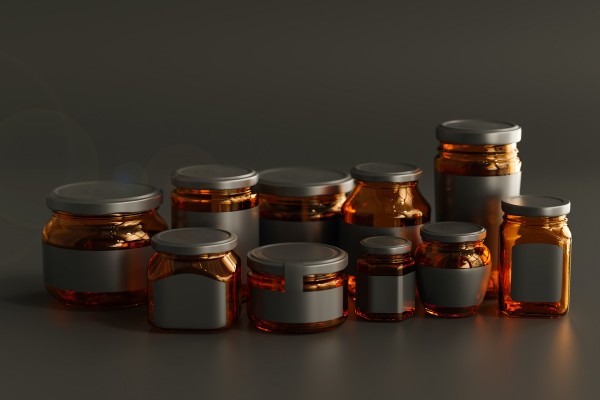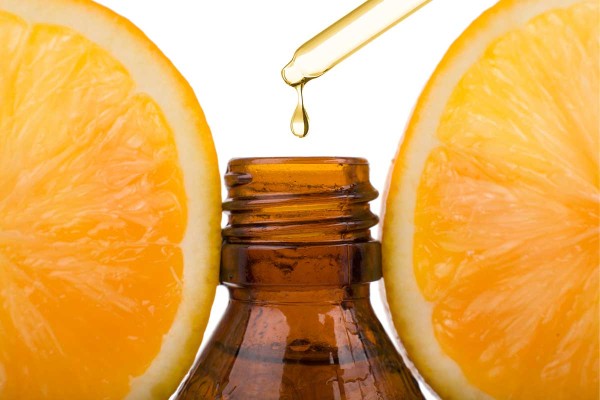Can Hyaluronic Acid Foods give you beautiful skin?
translation by Karen Wang
Nowadays, functional foods are very popular on the market, including the famous hyaluronic acid food. In addition to the common cosmetic surgery shaping and wrinkle removing injections, facial moisturizing cosmetics and so on, now the hyaluronic acid foods also come out on the market. Are you surprised?
However, are such hyaluronic foods reliable or not? Let me talk from the perspective of food laws and regulations.
What is hyaluronic acid?
Firstly, Hyaluronic acid is a kind of sulfur-free straight chain mucopolysaccharide, which is composed of D-glucuronic acid and N-acetylglucosamine. It is widely distributed in connective tissue, epithelial tissue and nerve tissue of human body. It was first isolated from bovine vitreous by scientists from Columbia University in 1934.
Hyaluronic acid has many important physiological functions, such as skin water retention, joint lubrication, regulation of vascular wall permeability, regulation of protein and promotion of wound healing. It is widely used in biomedicine, cosmetic plastic surgery and cosmetics.

So how did hyaluronic acid expand from your dressing table to your dining-table?
Hyaluronic acid first appeared as health food. At the end of the 20th century, Japan first launched hyaluronic acid skin care health food.
At present, hyaluronic acid health food has been recognized and listed in many regions of the world. There are many kinds of health food containing hyaluronic acid on the market in the United States, Great Britain, Canada, Czech Republic, Japan, Taiwan (China) and other regions.
As far as 2020 is concerned, more than 100 kinds of food containing hyaluronic acid are available on the market in Japan.
Studies proved that oral hyaluronic acid has the functions such as rehydrating, improving joint function and osteoporosis, repairing gastric mucosal injury, accelerating wound healing, improving cardiovascular system, improving symptoms of chondrosis, improving human immunity, promoting angiogenesis, etc.
In May 2008, under the application of Huaxi Biology, the leading manufacturer of "Hyaluronic Acid", the Ministry of Health of China issued relevant announcement in accordance with the provisions of the "Measures for the Administration of Novel Food Material", and approved sodium hyaluronate as a novel food material which can be used as raw material for health food, but only for health food.
Huaxi Biology then launched hyaluronic acid health food "HYLOVY" and the global oral beauty brand "Plumoon".
It should be noted that the raw material of this health food approved by China is "sodium hyaluronate".
Sodium hyaluronate is a kind of straight chain macromolecular polysaccharide, which is produced by fermentation of streptococcus equi subspecies, zooepidemicus with glucose, yeast powder and peptone as culture medium.
"Hyaluronic acid" and "Sodium Hyaluronate" have similar effects. The difference is that "Hyaluronic acid" is an acid and "Sodium Hyaluronate" is salt. Sodium hyaluronate, which contains sodium, is more stable and has smaller molecules, which can be absorbed and penetrated more effectively in the deeper skin.
There are more than 20 kinds of health food containing "Sodium Hyaluronate" on the market in China. Most of the declared functions are "improving skin moisture" and "increasing bone density".
With the in-depth study on the functions of Hyaluronic Acid in China, the application of Hyaluronic Acid in the food field is gradually enriched, and the demand is increasing.
The leading manufacturers continue to apply for "Sodium Hyaluronate" as a novel food material for general food production.
In January 2021, the National Health Commission announced that "Sodium Hyaluronate" was listed as a novel food material and allowed to be added to general food.

As a novel food material, the announcement of the National Health Commission specifies the application scope and recommended maximum dosage of "sodium hyaluronate" in general food, that is:
-
dairy and dairy products (0.2g/kg),
-
beverages (liquid drinks in ≤ 50 ml packaging 2.0 g/kg, 51-500 ml package 0.20 g/kg, solid drinks converted according to the liquid volume after preparing),
-
alcoholic beverages (1.0 g/kg),
-
cocoa products,
-
chocolate and chocolate products (including alternative cocoa butter chocolate and products),
-
candy (3.0 g/kg),
-
frozen drinks (2.0g/kg).
Dosage: ≤ 200 mg / day
Unsuitable for infants, pregnant and breastfeeding women.
Note:
-
In addition to the food categories that can be added with "Sodium Hyaluronate" as specified above, "Sodium Hyaluronate" shall not be added to other food categories.
-
"Sodium Hyaluronate" should not be used in infant food.
-
If "Sodium Hyaluronate" can be added to the food category as specified above, it is necessary to give the note, it is not suitable for infants, pregnant and breastfeeding women, and the maximum amount should not exceed 200 mg / day.
The quality specifications of Sodium Hyaluronate must meet the followings:
|
Character |
White particles or powders |
| Sodium Hyaluronate content, g / 100g | ≥87.0 |
| Moisture content,g/100g | ≤10.0 |
| pH | 6.0–8.0 |
| Ash content,g/100g | ≤13.0 |
Since "Sodium Hyaluronate" has been approved as a novel food material, can the food containing "Sodium Hyaluronate" have a functional claim?
Firstly, the name of the raw material should be "Sodium Hyaluronate", not "Hyaluronic Acid".
Secondly, according to the novel food material approval process of Sodium Hyaluronate, it shall be discussed based on "health food" and "general food".
The functional claim of health food containing "Sodium Hyaluronate"
In 2008, the Ministry of Health approved Sodium Hyaluronate as a novel food material for health food, that is, Sodium Hyaluronate can be added to health food.
However, the function claims of health food are strictly limited. There are 27 kinds of health function claims approved by the State, including "improving skin moisture" and "anti-oxidation" in terms of beauty.
However, claims such as "improving skin, making skin beautiful" are not approved.
General food containing "Sodium Hyaluronate"
In 2021, the Ministry of Health approved Sodium Hyaluronate as a novel food material for designated gneral foods.
Can claims of beautiful skin be used for general food? The answer is NO.
General foods are not allowed to have claim of therapeutic effects. According to the Article 71 of the Food Safety Law: labels and instructions of food and food additives shall not contain false contents or involve in the functions of disease prevention and treatment.
The producers and operators shall be responsible for the contents of the labels and instructions provided by them. According to these provisions, it is illegal to claim that general food has therapeutic function.
Therefore, the health food containing Sodium Hyaluronate can have functional claims, but the claims should be within the specified scope of functions, such as "help to improve skin moisture status" or "assist to antioxidation", other claims might violate the rules.
As for general foods containing Sodium Hyaluronate, function claims cannot be used. Then how to promote "Sodium Hyaluronate" in advertisement?
The answer is that it shall follow the provisions of Advertising Law and the Anti-unfair Competition Law, and no false publicity shall be involved.

Picture source: Baidu picture
What does expert say about the Hyaluronic Acid?
Let's take look at Hyaluronic Acid from the perspective of scientific principles. The technology of Hyaluronic Acid is tested and it has been approved, it should be safe for human body as long as the daily intake is less than or equal to 200 mg / day.
Comments from experts:
Ruan Guangfeng, director of Science and Technology Department of Kexin food and nutrition information exchange center, said that
"Hyaluronic Acid is a macromolecular polysaccharide, which cannot be directly absorbed by the human body. It needs to be digested and decomposed by the gastrointestinal tract and converted into small molecules of sugar before it can be absorbed and utilized by the human body.
Secondly, the human body can synthesize Hyaluronic Acid by itself.
Hyaluronic Acid is synthesized by membrane protein hyaluronic acid synthase that is already in the human body, and it can synthesize Hyaluronic Acid by adding the substrate produced by human metabolism. Such basic raw materials can actually be obtained from diet and metabolites, no need to supplement Hyaluronic Acid at all".
Another expert- Liu Shaowei, professor of the Bioengineering College of East China University of Science and Technology said that
"there is no widely recognized research achievement regarding how long monosaccharide can be synthesized and how much hyaluronic acid can be synthesized more experiments and data are needed to support the effect of Hyaluronic Acid".

So, do you think the Hyaluronic Acid food is a bit confusing?
Anyway, food safety of Hyaluronic Acid food is guaranteed. As for beautiful skin from Hyaluronic Acid food, we have to say that "there is a long way to go".
Of course, if you want to try it, there is no problem since it has been approved. And we shall applause for the company of "hyaluronic acid" who promoted it in China. Knowing the importance of compliance, it persistently applied novel food material approval for hyaluronic acid and finally achieved.
Enterprises shall always have compliance evaluation and apply for approval for novel food material newly developed, and always bear in mind that compliance is the bottom line.


